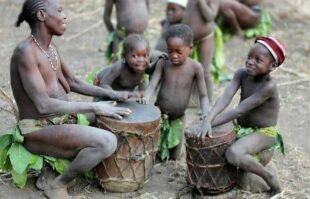Several ethnic groups have lived in the present-day Akwa Ibom State for hundreds of years, particularly the closely related Ibibio, Anaang, and Oron peoples in the state’s northern, eastern, and western regions, respectively. What is now Akwa Ibom State was once divided into a number of city-states, including the Ibom Kingdom and Akwa Akpa, the latter of which became a British protectorate as part of the Oil Rivers Protectorate in 1884.
The British actually took formal control of the region in the early 1900s before incorporating the protectorate, which is now known as the Niger Coast Protectorate, into the Southern Nigeria Protectorate, which later merged into British Nigeria. Following the merger, a large portion of present-day Akwa Ibom served as a focal point for political activism through the Ibibio State Union and anti-colonial resistance during the Women’s War.
The Ibibio people, who grow yams, rice, cowpeas, corn (maize), and cassava for subsistence as well as oil palm and cocoa for export, make up the majority of the state’s population. They are known for rearing chickens, pigs, sheep, goats, and rabbits. Deep-sea fishing and catching shrimp near the coast are also significant economic activities. Mineral resources in the state include offshore oil fields and lignite deposits.
In this piece, Naijabiography explores the history that led to the creation of Akwa Ibom, the cultural practices, and the economic contributions of the state to the development of Nigeria.
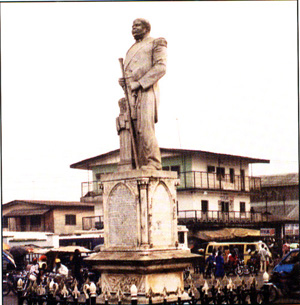
History
On September 23, 1987, the state’s region was formed by General Ibrahim Badamosi Babangida’s military regime out of Cross River State. Before the British invasion of what is now Akwa Ibom State in 1904, there was no central administration among the inhabitants. The Annang, Oron, Efik, Ibonos, and Ibibio were independent groups in contrast.
The British did not effectively establish authority in the region until 1904, despite the arrival of many Scottish missionaries in Calabar in 1848 and Ibono in 1887. The Enyong Division was established in that year, covering the territory of the present-day state of Akwa Ibom with its administrative centre in Ikot Ekpene, an Annang city referred to by the eminent Africanist Kaanan Nair as the political and cultural centre of Annang and Ibibio.
The different ethnic groups were able to unite for the first time with the establishment of the Enyong Division. The Ibibio Welfare Union, subsequently known as the Ibibio State Union, was also able to be founded as a result of this. In 1929, this social club was established as a forum for local development and improvement for organizations and individuals with higher education who were excluded from the colonial authorities.
However, some historians have incorrectly used the union to support their claim that the local groupings were all the same. Another powerful economic and cultural institution that flourished in the area was the Obolo Union, which included people of Ibono and Andoni descent. More than any other tribe in the area, the Ibono people have engaged in wars to defend their distinct identity and territory.
Meanwhile, the mainland portion of Calabar Province in Eastern Nigeria was only a part of the then South Eastern State until the 12-state system was founded in 1967 as a result of the creation of states by General Yakubu Gowon’s administration. Cross River State replaced South Eastern State as its name in 1976. The public was not pleased with this name change. Instead, it gave them more motivation to continue their fight for independence.
The Paramount Rulers from the 10 Local Government Areas that made up the mainland portion of the then-Cross River State submitted a memorandum to the General Buhari Administration after the 2nd Republic collapsed in 1983, even if it did not have the anticipated effect. Thus, unfazed, the populace awaited another chance for liberation. However, the chance arose in 1986 when General Ibrahim Babangida’s administration established a political bureau to determine the nation’s future political course. The memo was redistributed.
After over 40 years of persistent protest, Akwa Ibom State, the “Land of Promise,” was ultimately established on September 23, 1987, realizing the people’s collective aspiration.
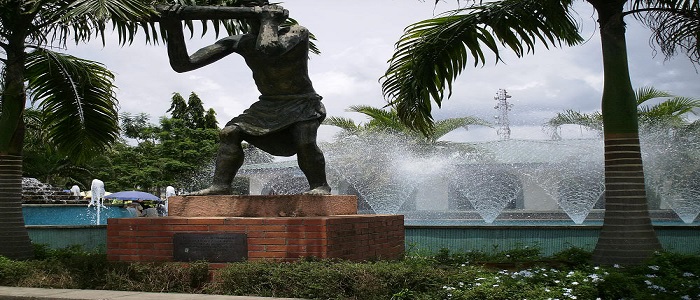
Ethnicities and Language
Since the liberation of Akwa-Ibom with its capital as Uyo, there have been the ethnic majority and minority groups that make up the population of the state, with different cultural values and lifestyles. According to research, Akwa-Ibom has about five major ethnic groups; Ibibio, Anaang, Oron, Ekid, and Obolo.
Meanwhile, the people of Akwa Ibom speak several varieties of the Ibibio-Efik languages, which are members of the Benue-Congo language family and the Niger-Congo group of languages, just like their Efik neighbours in Cross River State.
Akwa-Ibom people speak different languages, according to their local government area. These languages include; Anaang, Obolo, Ekid, Etebi, Ibibio, Ibuno, Ika Oku, Nkari, Itu Mbon Uso, Idere, Efik, Ebughu, Efai, Enwan, Oro, Iko, Okobo, Ilue, and Khana.
Religion
Aside from the deities prevalent in places like the Arochukwu and the traditional gods worshipped by people in Akwa-Ibom, which were in existence before the advent of colonialism and civilization, the most relevant religion in the state is Christianity. People in Akwa-Ibom are predominantly Christians.
Trade and Economic Growth in Akwa-Ibom
In Akwa-Ibom, since it is a part of the country near the rivers, the predominant trade in the state is fishing. However, people’s major sources of income come from farming, trading, artisanship, white-collar work, and fishing, which is prevalent for riverine and coastal inhabitants. A sizeable share of the state’s labour force is employed by a strong public sector (either as public servants or civil servants).
However, as a result of the various economic activities that the people indulge in and because of the population density, Akwa-Ibom contributes the least to the economy of the country. This is because Akwa-Ibom state’s average growth rate is estimated at 3.2% and its per-capital income (that is, income per head) or gross domestic product is lower compared to other states.
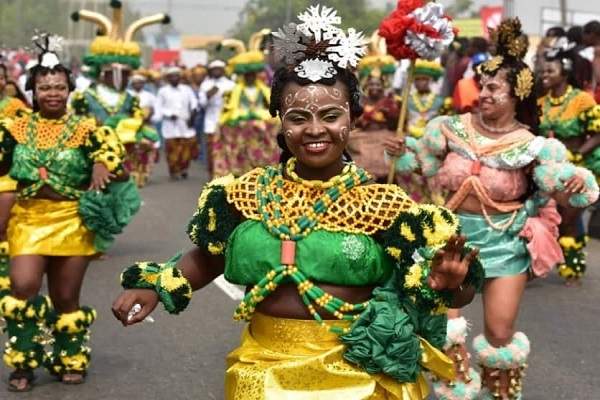
Culture
Akwa Ibom is sometimes regarded as a monocultural one, with similar rules, taboos, rituals, and traditions. Even if folkways may differ from one ethnic group to another, operational cultural norms are essentially the same throughout the State. People are united by their shared cultural traits, particularly in regards to foods, attire, dances, songs, rituals, folklore, beliefs, and mythology. Furthermore, almost all facets of its culture have the potential to provide tourists and investors with unique experiences.
Akwa-Ibom people are known for their different types of dance which include; Asian Ubo Ikpa (performed by maidens between the ages of 18 and 25, known to have passed the period of Mpobo), Oko (it is a male dance, which is also known as a war dance), Nkerebe (meaning “looking for a husband”- women dance at puberty stage), Asian Mbre Iban (it is a maiden dance to announce their eligibility to men for marriage), Ndok Ufok Ebe (meaning “shame of a bad husband”- a dance to express the maltreatment of their husbands), and Ebre (women dance performed during the harvest of new yam).
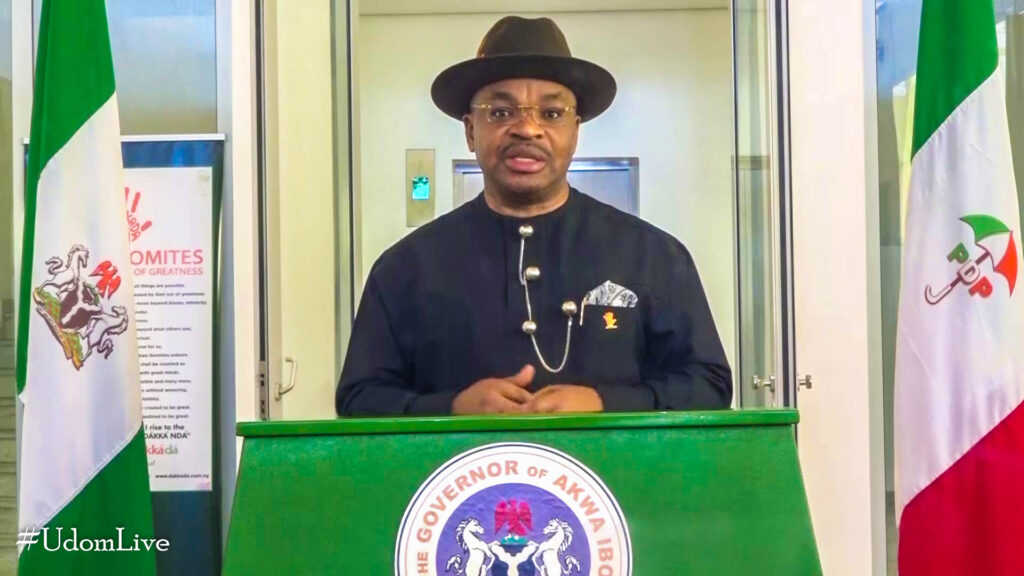
Modern-Day Akwa-Ibom
Akwa-Ibom state now has about 21 ministries in charge of the public administration to ensure the welfare and security of the people in the state. Also, as of 2016, Akwa Ibom is the 30th largest in the area and the fifteenth-most populous in Nigeria.
Modern-day ethnic groups have lived in Akwa Ibom State for hundreds of years, but the Ibibio, Anaang, and Oron peoples, who inhabit the state’s northern, western, and southern regions, respectively, are the most prevalent. As a matter of fact, Ibibio has remained relevant and has become the group with the highest population since the creation of the state.
Furthermore, the education sector in Akwa-Ibom has continued to promote the state’s capacity and further developed the state in terms of the provision of tertiary institutions. Akwa-Ibom has about 15 institutions which include; Akwa Ibom State Polytechnic Ikot Osurua, Akwa Ibom State University (Oruk Anam LGA and Mkpat Enin LGA), Federal Polytechnic, Ukana, Foundation College of Technology Ikot Ekpene, Heritage Polytechnic, Eket, Maritime Academy of Nigeria, Oron, Obong University, Obong Ntak, Ritman University, and University of Uyo, Uyo, among others.
Akwa-Ibom is popularly known as the “Land of Promise” which according to the Igbos is nicknamed “Akwa Abasi Ibom State.”



